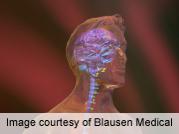
FRIDAY, Nov. 2 (HealthDay News) — Lab tests have found bacteria in two other medical products made by the Massachusetts-based specialty pharmacy at the center of the ongoing fungal meningitis outbreak, U.S. Food and Drug Administration officials said Thursday.
It’s not yet clear just how dangerous the various bacteria found in three batches of a steroid used during eye surgery and one batch of a solution used to stop the heart during cardiac surgery might be, FDA officials said in a news release.
However, tests for fungal contamination in both products are pending and FDA officials reiterated their concern about the safety of any medical products made by the New England Compounding Center. Since the meningitis outbreak began more than a month ago, the company has recalled all of its medical products and shut down its manufacturing plant in Framingham.
Meanwhile, Massachusetts officials said Thursday that they had put emergency regulations in place that give the state greater control and scrutiny over specialty pharmacies such as the New England Compounding Center, the Boston Globe reported.
Under the new rules, the state can now track the volume and distribution of drugs made by these pharmacies to see if they should be subject to FDA licensing regulations, the Globe reported. Pharmacies that fail to follow the stricter state regulations will be subject to penalties that include being shut down or quarantined by the state pharmacy board. Specialty pharmacies will also have to report when they are being investigated by another state or federal agency, according to the Globe.
As of Friday, 29 people had died and 404 had been sickened in the fungal meningitis outbreak, federal health officials said.
The U.S. Centers for Disease Control and Prevention on Friday had the following state-by-state breakdown of cases: Florida: 23 cases, including 3 deaths; Georgia, 1 case; Idaho, 1 case; Illinois, 2 cases; Indiana: 50 cases, including 3 deaths; Maryland: 23 cases, including 1 death; Michigan: 112 cases, including 7 deaths; Minnesota: 10 cases; New Hampshire: 11 cases; New Jersey: 21 cases; New York: 1 case; North Carolina: 3 cases, including 1 death; Ohio: 16 cases; Pennsylvania: 1 case; Rhode Island: 2 cases; South Carolina: 1 case; Tennessee: 78 cases, including 12 deaths; Texas: 2 cases; Virginia: 46 cases, including 2 deaths.
Nine of the 404 cases involve what the CDC calls “peripheral joint infection,” meaning an infection in a knee, hip, shoulder or elbow. These joint infections aren’t considered as dangerous as injections near the spine for back pain that have been linked to the potentially fatal meningitis infections.
Meningitis is inflammation of the lining surrounding the brain and spinal cord. The steroid injections are used to treat pain in the lower back as well as joints.
Infected patients have developed a range of symptoms approximately one to four weeks following their injection. People who have had a steroid injection since July, and have any of the following symptoms, should talk to their doctor as soon as possible: worsening headache, fever, sensitivity to light, stiff neck, new weakness or numbness in any part of your body or slurred speech, the CDC said.
The CDC and state health departments estimate that roughly 14,000 patients may have gotten steroid injections from the New England Compounding Center. All of the fungal meningitis patients identified so far were thought to be injected with methylprednisolone acetate, according to the CDC.
The New England Compounding Center is what’s known as a compounding pharmacy. These pharmacies combine, mix or alter ingredients to create drugs to meet the specific needs of individual patients, according to the FDA. Such customized drugs are frequently required to fill special needs, such as a smaller dose, or the removal of an ingredient that might trigger an allergy in a patient.
Compounding pharmacies aren’t subject to the same FDA oversight as regular drug manufacturers are, but some members of Congress now say the meningitis outbreak highlights the need for more regulatory control.
More information
The U.S. National Library of Medicine has more about injections for back pain.

